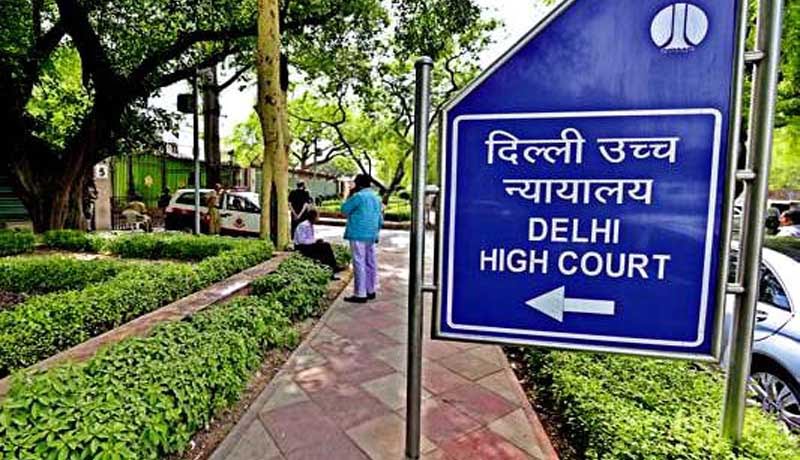Rule Mandating Banquet Hall Owners required to show Sales Turnover to determine Luxury Tax is Ultravires: Delhi HC [Read Judgment]

Finance Act – Delhi High Court – taxscan
Finance Act – Delhi High Court – taxscan
Delhi High Court Strikes down the Rule 3 (2) (b) (ii) of the Delhi Tax on Luxury Rules, 1996.
On a writ petition filed by the Community Welfare Banquet Association Delhi, the Delhi High Court struck down the Rule 3 (2) (b) (ii) of the Delhi Tax on Luxury Rules, 1996 which mandates Banquet Hall Owners to include the entire value of the turnover regardless of whether the substantial part or whole of them are subjected to VAT levy.The Court emphasized that the new rule is totally against the scheme of the parent Act i.e, Delhi Tax on Luxury Act, 1996.
In the instant case, the petitioners, Community Welfare Banquet Association Delhi, an association of Banquet Hall Owners, approached the High Court impugning the vires of Rule 3 (2) (b) (ii) of the Delhi Tax on Luxury Rules, 1996.According to them, a large majority of its members are registered dealers under the Delhi VAT Act, 2004. The existing VAT regime in Delhi requires dealers who report return of an annual turnover of more than Rs.20 lakhs, to comply with its provisions and file quarterly returns purporting the details of the transaction for the particular periods. The grievance of the petitioners was that the impugned rule, which was newly introduced, requires all Banquet Hall Owners to include the entire value of the turnover regardless of whether the substantial part or whole of them are subjected to VAT levy.The petitioners submitted that the Delhi Tax on Luxury Act, 1996 clearly bars levy and recovery of luxury tax “in respect of turnover of receipts for supply of food, drinks and goods such as cosmetics, medicines, nutritional supplements etc. on the sale of which the proprietor is liable to pay tax under the Delhi Value Added Tax Act, 2004. Therefore, it was submitted that the new rule is inconsistent with the Parent Act, and therefore invalid.
The Revenue, on the other hand contended that,though VAT amounts are excluded by virtue of Section 3 (5), its language states that tax amount would not be levied to the extent “turnover of receipts for supply of food, drinks and goods”; however, the remaining turnover of receipts is liable to luxury tax. It is submitted that in effect Rule 3 (2) (b) (i) and (ii) constitute dimensions of the mechanism for recovery of luxury tax and cannot be per se characterised as ultravires.
The division bench comprising of Justice S Ravindra Bhat and Justice Deepa Sharma observed that “It is evident that the levy of luxury tax is upon all those incidents which are defined as luxury under Section 2 (i). The provisions of the Act lay out the manner of recovery which is through an obligation on the part of the proprietor or firms which provides luxury to register itself and collect luxury tax charges, from its customers in respect of the luxury service provided by it. At the same time Section 3 (5) incorporates an important exclusionary principle. Given that the legislature was conscious of an element of overlap in the broad nature of the levy and also the circumstance that the overlap can be in respect of two different heads of taxation which are within the exclusive domain of the State legislature, as a matter of policy in this present instance the provision – Section 3(5) embodies an important and salient principle i.e. excludes all those items for luxury which were also subjected to DVAT levy.”
The Court refused to accept the contention of the Revenue that there is a radical difference between the threshold required for luxury tax levy on the one hand and the DVAT levy on the other.
“There is no doubt that in the present case, the thresholds are fulfilled. Furthermore, what is important is not the collection but the subjecting of the incidents of taxation. As long as the activity answers description provided by the legislature – in the present instance of luxury, it would be subjected to tax. Equally, as long as there is a sale or transfer of goods or right to use the goods or other services which are purportedly a subject of VAT, that thedealer is subjected to actual levy and collection at a higher threshold is a matter of detail. The levy exists per se by legal definition. It is this aspect which is crucial rather than the existence of higher or lower threshold as is urged by the revenue” The Court said.
Based on the above findings, the Court struck down the impugned rules.


